- Home
- Janice Kay Johnson
Bone Deep Page 5
Bone Deep Read online
Page 5
“I’d better run,” he said, hoping his disturbing thoughts didn’t show on his face.
She looked briefly dismayed, or maybe that was in his imagination. Then her mouth curved into a smile, presumably because Mike still waited, hopeful for her attention. “Thanks for coming.” She bent to reach for a pot on a flatbed cart, but instead straightened. “Oh. Did you get that daphne in the ground?”
That was what the shrub was called. Daphne. “It’ll have to wait until Sunday.”
“If it gets too cold before then, you might want to stick it in the garage. They can be delicate before they’re established.”
So she’d said. Or maybe it was the other nursery worker who’d told him that, he didn’t remember. Grant was beginning to see the damn plant as a challenge all its own, as if Kat and her employee both doubted his ability to make the sweet-smelling shrub happy.
“I’ll be careful,” he promised, although how you could be careful when you stuck a bush in the ground, he didn’t know. As far as he was concerned, things he planted either grew or they didn’t. If they didn’t, something else would. But this daphne he’d coddle with infant formula if he had to. If it died, he wouldn’t admit it. He’d go buy an identical one somewhere else and plant it.
As if, he thought bleakly, getting in his car, there was any chance at all that Kat Riley would ever stroll in his yard wondering where that shrub he’d bought at her nursery was.
There was one upside to the appearance of those bones. If it turned out Hugh really had been dead all these years and Kat accepted that she was a widow and not a wife… Well, then, things might be different.
Assuming, of course, that she hadn’t killed him and already knew full well she was a widow.
CHAPTER FOUR
“YOU KNOW ALL ABOUT HER husband, right?”
Kat froze where she was, with the corner of a toolshed between her and the speaker. She knew the voice, and she knew who Melinda Simmons was talking about.“Well, sure.” That was Jason Hebert, sounding puzzled. “I mean, someone told me he, like, disappeared.”
“Lots of people still think Kat killed him.”
Kat closed her eyes. Melinda had worked for her for two years now. Kat had given her ten rosebushes when Melinda got married and she and her new husband bought a house that hadn’t yet been landscaped. They weren’t friends, Kat hadn’t kidded herself about that, but she’d thought Melinda liked her job and liked Kat.
Guess not, Kat realized. There was too much malice in that voice to allow her even to pretend that Melinda was only idly gossiping.
“Do you?” Jason asked.
“I’m not saying that.” Melinda must have heard his surprise and maybe indignation, because she was cautious enough to backpedal. “Just that plenty of people do. Like Ron Barrett. You know, the assistant city manager. He won’t buy from Kat. Bobby says he heard Mr. Barrett say the plants here were fertilized with blood.”
“Couldn’t he get in trouble for saying that, when he doesn’t have any proof?” Jason’s father was an attorney.
“It’s not like he announced it in front of a city council meeting,” Melinda snapped. “Bobby’s dad and Mr. Barrett are friends. It was at a barbecue at my parents-in-law’s. When Mr. Barrett heard I work here.”
“Well, I don’t believe it,” Jason declared stoutly. “I like Kat. And I saw her face when she found that bone.”
His voice had receded. They were walking away. Melinda said something back, but Kat couldn’t make it out. She was glad.
She heard herself panting. God, she thought. Knowing people were talking was one thing, hearing it was another. Especially from someone she’d liked. What had she ever done to Melinda to deserve that vicious tone?
It was all she could do not to walk after them right now, take Melinda into her office and let her go. But…what if other employees thought the same? Could she fire all of them?
Except Jason. Bless him.
Ron Barrett. She’d known vaguely that he had never shopped here at the nursery, but Kat had seen his house and yard and knew he wasn’t really a gardener, so she hadn’t thought much of it. She’d only met him a couple of times. Why was he convinced she was a murderer?
Of course, there’d been talk. It was natural, when a man disappeared. Spouses were the first suspects for a reason. But nobody even knew for sure that Hugh was dead. She hadn’t believed it, not at first. And yes, she’d been left the house and business Hugh had owned before their marriage, but the house had had—and still did have—a hefty mortgage and the nursery had barely made a profit. Kat doubted she could have sold it then. Hugh had run up large credit-card bills. The equity in the house wouldn’t have done more than give her a down payment on one somewhere else, if that, once she paid off those credit cards. Hugh hadn’t had any life insurance—that required more planning for the future than he could ever be stirred to do. He hadn’t left her rich, or even semi-well off. What he had left her was the seeds of a business she’d nurtured into what it was now.
She’d done it, and on her own. Anger rose in Kat, choking her. Why would people who didn’t even know her well assume the worst about her? She didn’t understand.
Carrying the rake in one gloved hand, she strode out from behind the shed. Jason was no longer in sight, but Melinda was talking to a couple over by the lilacs. Her expression was earnest as she gestured at one in a five-gallon pot.
Firing her would only make of her a worse enemy. Gritting her teeth, Kat turned away. Raking up scattered shavings suited her mood just fine. She needed the physical exertion, the chance to sweat.
There were other, more important things she ought to be doing, but she still hadn’t worked up the nerve to dip another trowel into a wheelbarrow of potting soil or compost.
She’d had a week now without a visit from Grant Haller. Almost seven full days that felt like the sickly quiet before a tornado back in Kansas, where she’d grown up. That week, for the first time ever, Kat had dreaded opening the nursery, talking to customers who’d likely heard the whispers. She’d found herself looking at every single person differently than she had before. Wondering. It wasn’t pleasant, to find herself speculating about who might have planted those bones as a joke…or worse. About who knew exactly what had happened to Hugh and had kept his remains for some unimaginably horrific reason.
But she kept stumbling over the fact that she would have sworn everyone liked Hugh. He wasn’t perfect; she’d gotten so frustrated with him sometimes she wanted to bash him, although not lethally. His refusal to listen to ideas for changes at the nursery that might have required a little more effort on his part, or a modest outlay of money, had made her crazy. He liked plants, he liked people, but he had no business sense at all. And no ambition. He didn’t care if they made more money. He didn’t care if Sauk River Plant Nursery drew gardeners from beyond their small community. If she got mad when he blew off some suggestion of hers, he’d look at her in bemusement and wander away.
“Honey, bigger isn’t always better,” was one of his favorite lines.
No. It wasn’t. But better was better. It undoubtedly said something about her, that she couldn’t bear mediocrity, but Kat craved the success Hugh couldn’t be bothered to strive for. She even knew why. She’d been eight years old when her mother left her at a neighbor’s house and never came back. She wasn’t abused in the succession of foster homes that followed, but she wasn’t loved, either. She’d sometimes felt like a ghost. Foster parents and the other foster kids in each of the homes had known she was there, but, as though she were semitransparent, they never saw her, not really.
School was different, though. Teachers noticed when she excelled. And later, when she held after-school and summer jobs, employers noticed. If she did an assignment or a job right, better than right, they saw her and they smiled. Once she married Hugh, Kat threw herself heart and soul into the nursery business. There might be times he seemed to forget they were married, but if she could become indispensable at the nursery, she
would matter.
Only, she hadn’t mattered very much, or he wouldn’t have left her.
It had bothered her terribly back then that she’d almost hoped he was dead, so she could believe he hadn’t abandoned her, not on purpose.
She worked until her muscles ached, until strands of hair stuck to her sweat-dampened face, until she felt a blister forming even though her hands were calloused and she wore heavy gloves.
The same thoughts circled maddeningly in her head. Why? Why kill Hugh, kind and disinclined to offend anyone? But if he’d died accidentally and someone had found his body… Why keep silent? Why taunt Kat now with bones?
None of it made any sense.
She saw Joan coming, stomping her way along the rows in her sturdy boots.
“Enough already,” Kat’s friend snapped. “What are you doing, trying to make it clean enough for somebody to eat off the ground?”
Kat glanced around. The shavings mounded in rows now had ruler-sharp edges. There were a few perfect circles protecting the roots of specimen trees. Not a wood chip was left on hard-packed paths. She had the sudden, fanciful thought that she was looking at one of the mysterious designs known as crop circles. Her own motivation in caring so fiercely that the nursery grounds be utterly pristine would be as unknowable to someone else as those crop circles were to the bewildered farmers who found them in their cornfields.
There was so much she couldn’t control, but the nursery was hers now. She could shape it to a vision only she saw.
She let out a shuddery breath. “I guess I’m done, anyway.”
“What set you off?” Joan asked.
“Gossip. Nasty gossip.”
Joan’s eyes narrowed. “Anyone I know?”
“Yes. And no, I won’t tell you who. Not until I decide what to do about it.” She turned and walked to the shed, her friend behind her. After hanging the rake on its hook, she said, “I guess I’m naive, but I didn’t realize there was still so much talk.”
“Things are changing with all the new people in town. But for the old guard…well, there hasn’t been that much to talk about. Hugh’s disappearance was too juicy to let go.”
“Does everybody assume I killed him?” Kat hated the helplessness that underlay her rage, but couldn’t entirely quell it.
Joan reached out and gripped her hand. Her expression was both kind and worried. “You know better than that.”
“I’m not sure I do anymore.” Kat shook herself. “Don’t listen to me. I’m in a mood. It’s like seeing the flash of lightning and now waiting for the boom of thunder.”
“But it’s been a week.”
“Think how much fun it is to draw out the suspense.”
A sound escaped Joan. “Is that what you think?”
“I don’t know what to think!”
“Has Chief Haller—”
“I haven’t heard from him. Unless something else happens, I probably won’t.”
“Isn’t he talking to the people on our lists?”
Kat shook her head. “We agreed that wouldn’t accomplish anything but cause more talk and damage business. It’s not like someone was going to admit to planting those bones.” She snorted. “Planted. Get it? A pun?”
“Very funny.” Joan wasn’t amused. “But what if we never find out who did it?”
“Then…” Kat found herself voiceless for a long moment as she tried to imagine this week replaying over and over and over again, the tension stretching thin but never disappearing entirely. “Then,” she whispered, “I live with it.” She knew she could; after all, she’d had plenty of practice after Hugh’s disappearance.
“Ms. Riley?” It was another of her employees, a beefy young man named Chad Harris who wasn’t awfully bright but who could lift anything and worked uncomplainingly from the minute he arrived in the morning. “I’ve got those rhododendrons you ordered. Where shall I put them?”
“Excuse me,” she said to Joan, and went with Chad.
The day didn’t improve, either, because this was the every-other-week Thursday when she had to do payroll. There was no putting it off. Friday was payday, and everyone expected their checks. She’d added a time clock a couple of years ago, which should have made calculating hours a breeze but didn’t. Employees forgot to clock in, or clock out. Sometimes they clocked in and out for lunch, sometimes they didn’t. Now she had to figure pay down to the minutes they worked, not just the hours. The whole thing was a giant headache.
Kat reluctantly collected the time cards from the small employee room that had space for a bank of metal lockers salvaged from the old middle school, a microwave on a cart, a dorm room-size refrigerator and a plastic table with chairs that allowed people to sit to eat lunch. Then, after signaling to Joan, she closeted herself in her office.
It took her an hour and a half with paper, pen and calculator to figure out how much to write the checks for. After swearing for about the tenth time, she thought as she did every other week about how maybe it was time to consider computerizing. How hard could it be to learn QuickBooks or some similar program? Let it do the calculating, and she could even print the checks instead of writing them out by hand. Or maybe she was getting to the point where she could afford a part-time bookkeeper, although she didn’t really have office space to spare.
She opened the left hand drawer in her ancient desk where she kept the checkbook and was reaching in with barely a glance when her brain caught up with what her eyes were telling her.
A skeletal hand lay there. Not just a bone, or even a couple, or a jumble. An entire hand, laid out as carefully as her paths on the nursery grounds. A few of the ivory bones, she saw with horror, were strung together with dried gristle.
And—oh God—the hand wore a man’s plain gold wedding ring.
“YOU CALLED IN TO SAY you were taking a break at 10:32.” Grant glowered at one of the two young officers standing stiffly in front of his desk. “You, Erickson, never called in at all.”
Blond and skinny, the kid had an enormous Adam’s apple. It bobbed a couple of times. “I guess I forgot. Sir.”Grant transferred his gaze to Dennis Porter. “I drove past the Starbucks at 11:18. There were then two patrol cars parked out in front. Your break had extended to forty-six minutes. We had only three officers patrolling this morning.” He let his voice rise. “Two of you were sitting on your asses sipping cappuccinos for damn near an hour this morning.”
Erickson was stupid enough to say, “Sir, I wasn’t there that long. I was only—”
Porter gave him a dirty look before turning his flushed face forward again.
“At least dispatch knew where Porter was. You, now—” The cell phone at his waist vibrated. Grant looked down and saw a number that he’d programmed in, just in case.
Shit.
“I have to take this call,” he said. “Consider yourselves warned. Now get out of here.”
They scuttled so fast, they had to wrestle briefly to decide who was getting out the door first. Grant swung away to look out the window at the parking lot.
“Haller.”
“Grant, this is Kat. Um, Kat Riley, from the nursery.”
“I know who you are.”
“I have more bones.” She sounded eerily calm, which meant she was scared to death.
“Where this time?”
“My desk drawer.” She paused. “It’s a whole hand this time. And…and I think it’s wearing Hugh’s wedding ring.”
“Oh, damn,” he said, his eyes closing briefly. “Kat…you haven’t touched anything, have you?”
“No.” There was a tremor in her voice now. “I can’t think of anything I less want to do than touch those.”
“Okay. Stay where you are. Don’t tell anyone else. I’m on my way.”
“Thank you,” she whispered.
He didn’t run any of the red lights downtown, but it was a close call. He sure as hell wanted to. He kept picturing her sitting behind that desk in her dim little hole of an office, staring fixedly at the sk
eletal remains of her dead husband’s hand. God almighty.
We still don’t know that these bones are Hugh Riley’s.
The hell they didn’t, he thought. He’d reached a point where he’d be willing to bet a year’s pay that Kat’s husband was being returned to her piece by piece. Nothing else made sense.
Was she being blackmailed? Was that what this was about? If someone had retrieved Hugh from wherever she’d stashed him—say, in a storage locker—this was a dandy way to scare her into paying up, and continuing to pay.
Except, she clearly wasn’t. And that begged the question of why she was calling him every time a bone appeared.
Thwarted by the last traffic light on the main street, he drummed his fingers on the steering wheel and stared, willing it to turn green. As if to piss him off, it stayed red for an eternity.
When he finally got there, the parking lot in front of the nursery was almost empty. They were only an hour from closing, he realized, and rain clouds darkened the sky although they hadn’t opened up yet. It had been the wettest damned spring so far that he could remember since he moved to the Northwest. It was a good thing no one was around to notice his fourth visit in not much over a week.
He entered the main nursery building, greeted the woman behind the counter—Joan Stover—and went directly to Kat’s office. When he knocked, she called, “Come in.”
“You should have locked,” he said brusquely as he entered. “And asked who I was before you invited me in.”
Kat wasn’t behind her desk. She stood in the corner, almost pressed against the wall, as if she’d been trying to get as far from her discovery as she could while staying in the office. Her face was skim milk pale. He’d noticed before that she didn’t tan well, even working outside year-round as she did. She was more likely to have a constantly peeling nose during the summer. Her pallor today, though, had more to do with her shock than it did with naturally pale skin.
“I’m sorry,” Grant said more gently. “I shouldn’t yell at you.”

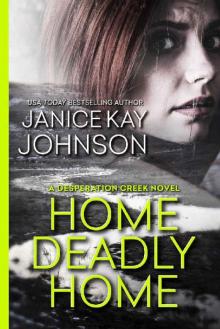 Home Deadly Home
Home Deadly Home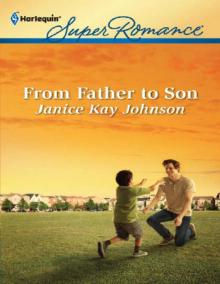 From Father to Son
From Father to Son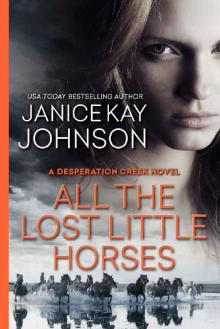 All the Lost Little Horses (A Desperation Creek Novel Book 2)
All the Lost Little Horses (A Desperation Creek Novel Book 2)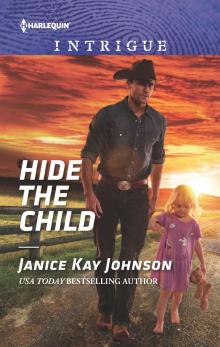 Hide the Child
Hide the Child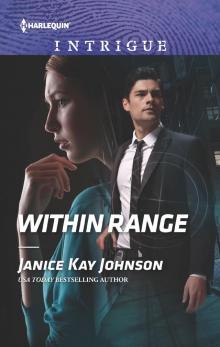 Within Range
Within Range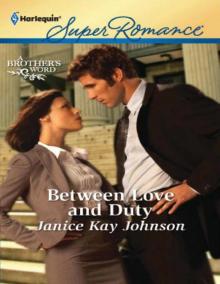 Between Love and Duty
Between Love and Duty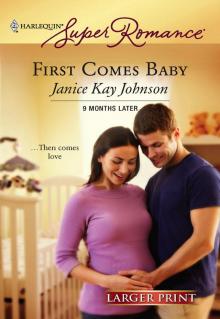 First Comes Baby
First Comes Baby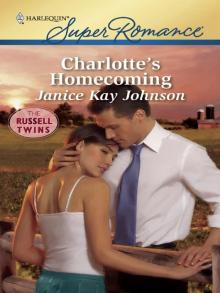 Charlotte's Homecoming
Charlotte's Homecoming In A Heartbeat (HQR Superromance)
In A Heartbeat (HQR Superromance)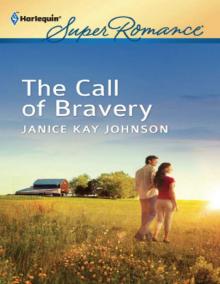 The Call of Bravery
The Call of Bravery In Hope's Shadow
In Hope's Shadow Anything for Her
Anything for Her Harlequin Superromance September 2014 - Bundle 1 of 2: This Good ManPromises Under the Peach TreeHusband by Choice
Harlequin Superromance September 2014 - Bundle 1 of 2: This Good ManPromises Under the Peach TreeHusband by Choice The Baby Agenda
The Baby Agenda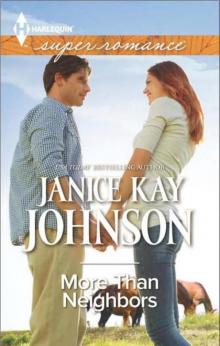 More Than Neighbors
More Than Neighbors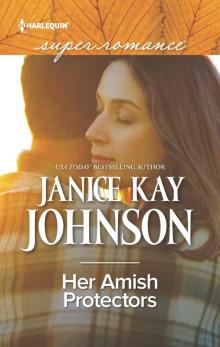 Her Amish Protectors
Her Amish Protectors All That Remains
All That Remains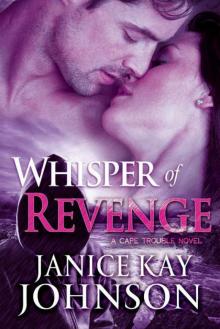 Whisper of Revenge (A Cape Trouble Novel Book 4)
Whisper of Revenge (A Cape Trouble Novel Book 4)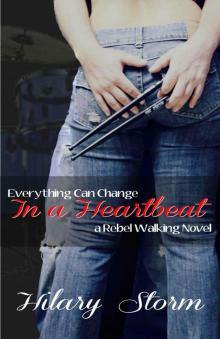 In a Heartbeat
In a Heartbeat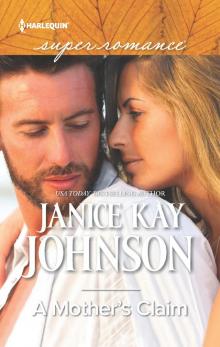 A Mother's Claim
A Mother's Claim Because of a Girl
Because of a Girl Back Against the Wall
Back Against the Wall Dangerous Waters
Dangerous Waters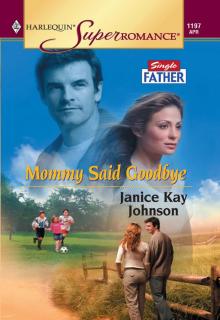 Mommy Said Goodbye
Mommy Said Goodbye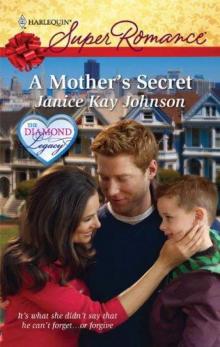 A Mother's Secret
A Mother's Secret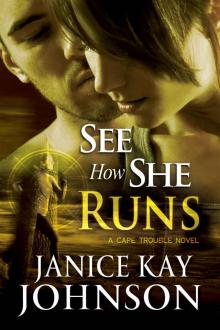 See How She Runs (A Cape Trouble Novel Book 2)
See How She Runs (A Cape Trouble Novel Book 2) Plain Refuge
Plain Refuge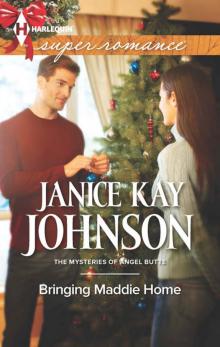 Bringing Maddie Home
Bringing Maddie Home For the Girls' Sake
For the Girls' Sake Through the Sheriff's Eyes
Through the Sheriff's Eyes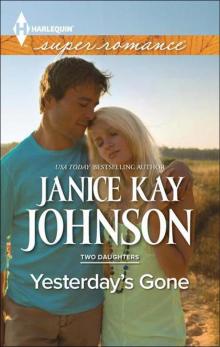 Yesterday's Gone (Two Daughters Book 1)
Yesterday's Gone (Two Daughters Book 1)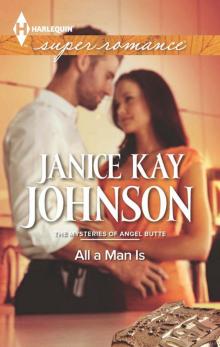 All a Man Is
All a Man Is Harlequin Superromance January 2014 - Bundle 1 of 2: Everywhere She GoesA Promise for the BabyThat Summer at the Shore
Harlequin Superromance January 2014 - Bundle 1 of 2: Everywhere She GoesA Promise for the BabyThat Summer at the Shore No Matter What
No Matter What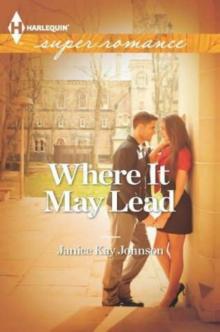 Wakefield College 01 - Where It May Lead
Wakefield College 01 - Where It May Lead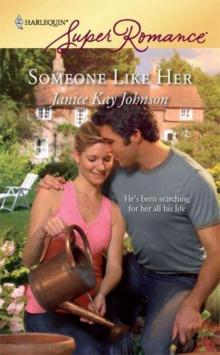 Someone Like Her
Someone Like Her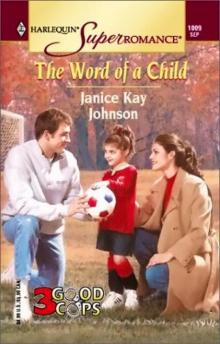 THE WORD OF A CHILD
THE WORD OF A CHILD Harlequin Superromance May 2016 Box Set
Harlequin Superromance May 2016 Box Set Open Secret
Open Secret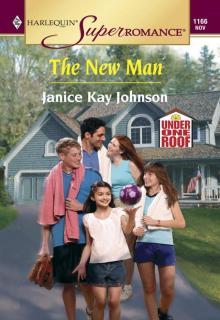 The New Man
The New Man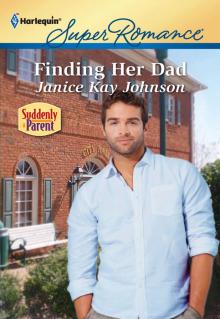 Finding Her Dad
Finding Her Dad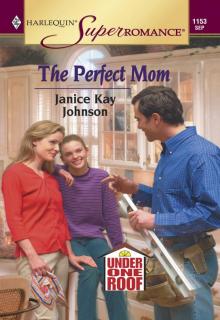 The Perfect Mom
The Perfect Mom All Through The House
All Through The House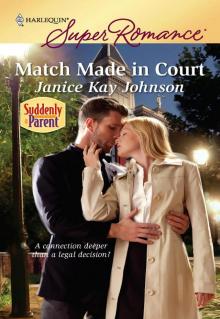 Match Made in Court
Match Made in Court Making Her Way Home
Making Her Way Home From This Day On
From This Day On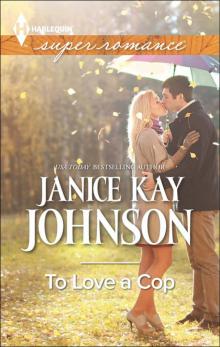 To Love a Cop
To Love a Cop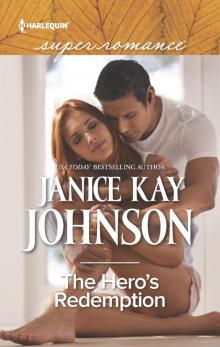 The Hero's Redemption
The Hero's Redemption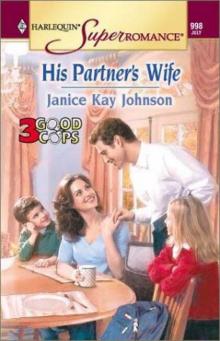 HIS PARTNER'S WIFE
HIS PARTNER'S WIFE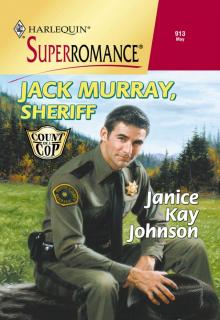 Jack Murray, Sheriff
Jack Murray, Sheriff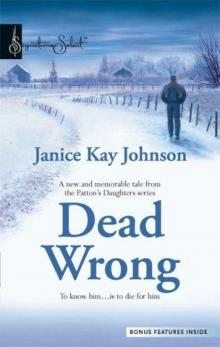 Dead Wrong
Dead Wrong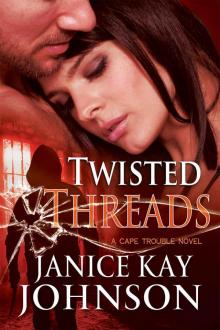 Twisted Threads (A Cape Trouble Novel Book 3)
Twisted Threads (A Cape Trouble Novel Book 3)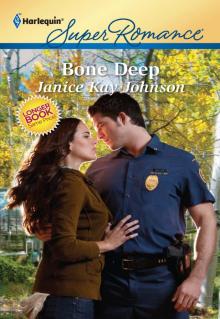 Bone Deep
Bone Deep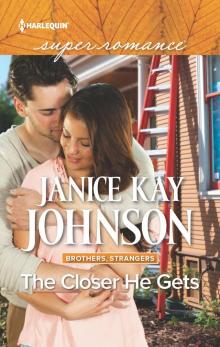 The Closer He Gets
The Closer He Gets With Child
With Child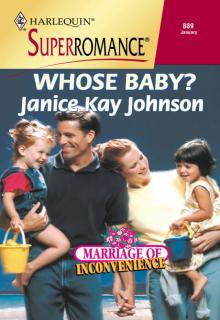 Whose Baby?
Whose Baby? Kids by Christmas
Kids by Christmas